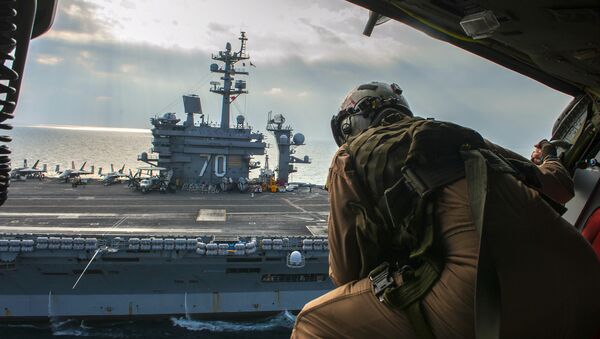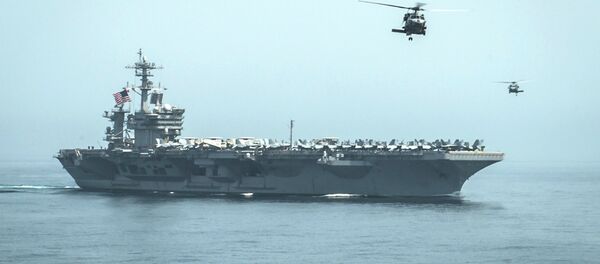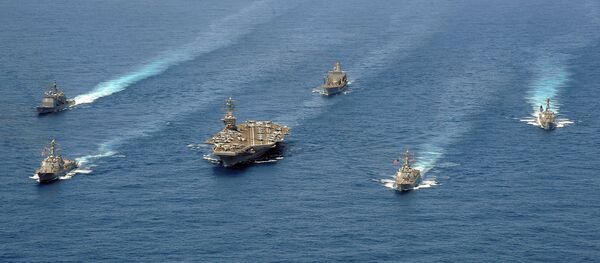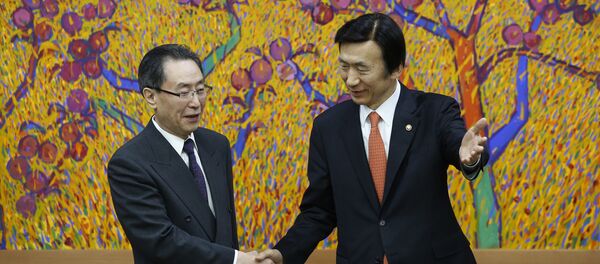Jeong Jaeheung, Senior Research Fellow at the Department of Security Strategy Studies, the Sejong Institute, drew historical parallels between US President Donald Trump's foreign policy and the Bush administration's pivot to the Middle East.
"The George W. Bush administration shifted its foreign policy focus to the Middle East after the September 11 attacks. It played directly into the hands of China," Jeong told Sputnik Korea.
"After the US foreign policy vector was turned towards the Middle East, China was able to concentrate on its economy and to make good progress; on the other hand, American enterprises were able to gain ground in China's market," the academic elaborated.
He believes that Trump can deliver on its promise to improve welfare of ordinary Americans by developing close economic ties with China. Jeong called attention to the fact that the recent meeting between Trump and Chinese President Xi Jinping were hailed as a success by Chinese media.
"Chinese President Xi Jinping and his US counterpart Donald Trump had their first meeting at the latter's Mar-a-Lago resort on Thursday and Friday. China's Foreign Ministry describes it as a "deep-going, friendly, long-time" session, which is also deemed by both sides as positive and fruitful. To the rest of the world, it serves as a paragon," Chinese media outlet Global Times reported on April 10.
For his part, Xi Jinping proposed a 100-day plan to Trump aimed at solving China's surplus in trade through investing $1 trillion in US infrastructure and goods.
"As for other important issues — the South China Sea, North Korea and other issues of politics and security, the parties exchanged views and, without mutual clashes and claims, retained the existing strategic positions," Jeong told Sputnik.
"The attack against Syria during the US-Chinese negotiations meant a shift from the problems of East Asia — a preemptive strike against the Democratic People's Republic of Korea (DPRK) and the South China Sea — to the Middle East," he believes.
Lee Sanghyeon of the Sejong Institute echoes his counterpart.
Both academics expressed doubts that the US will conduct a missile strike against Pyongyang, responding to concerns over reports that the US aircraft carrier-led strike group is now heading toward the Korean Peninsula.
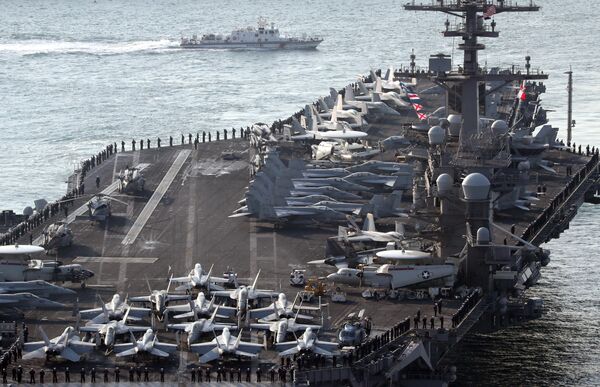
"To carry out a preemptive strike against the DPRK, one needs a clear assessment of the nuclear potential of North Korea, which is not yet available," Lee told Sputnik.
The question then arises how Beijing would react to the potential US strike against Pyongyang. According to Jeong, one can't guarantee that China will stand up for North Korea like in the time of the Korean War (1950-1953).
"If the US launches a preemptive strike against North Korea, one shouldn't expect that [Beijing] will provide their 100% support to the Koreans as in the time of the Korean war," the academic believes.
"In the event of the collapse of the DPRK, China will intervene only after weighing its benefits and strategic interests," he said.
However, Jeong remarked that if Washington attacks North Korea unexpectedly, without notifying Beijing of its plans, "China will give a strong response [to the US]."

